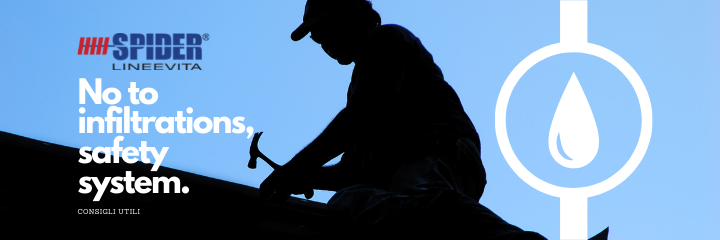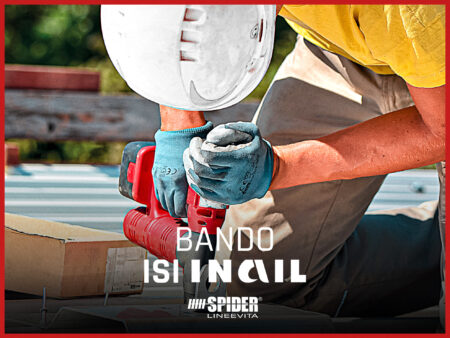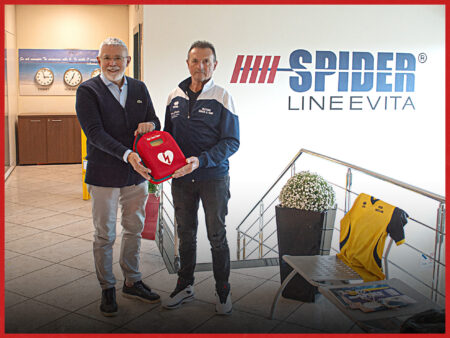
Fall arrest systems such as lineevita and under-tile hooks are installed on roofs to reduce the risks related to falls from the top. These systems must be installed taking into account their main functionality, the fall stop, but also in compliance with the characteristics of the cover. Among these, it is very important to ensure the impermeability of the cover to water.
Proper design and installation guarantees total effectiveness against infiltration, so it is important to contact qualified personnel for installations, with an excellent knowledge of the product to be installed and the peculiarities related to the type of coverage on which they are installed.
It’s possible to identify a series of tips that can reduce, in any case, water infiltration. These recommendations should be assessed as non-binding because the assessment should be made on a case-by-case basis.
Set 1. We keep water away from anchoring devices
Avoid the application of devices at channels for the outflow of water.
Precautions shall be taken to avoid water stagnation at the anchoring devices. Therefore pay attention to depressions or depressions. Check beforehand whether there are water stagnation points in the roof due to defects or conformation of the roof.
Avoid the application of devices where there is a constant or frequent jet of water. In other words, in correspondence with pipe outlet holes.
For sheet metal products, for fixing, preferably use the upper part of the Greek, avoiding to apply holes on the lower part of the same. Similarly, avoid drilling the lower part of the tiles.
All of these tips, which focus on getting water away from anchors, also have an added advantage. In fact, keeping the devices away from water also limits the phenomena related to corrosion, which affect in particular the galvanized devices in the presence of stagnant water.
Set. 2: Solutions for infiltration
The installation of the poles at the top of the roof is a good way to limit water infiltration. For these, simplified sealing operations can be carried out. In some cases, manufacturers use material specifically designed for this type of situation.
In the case of roof tiles, the installation of pitched poles must provide a solution that ensures the flow of water in continuity with the tiles. For example, since the tile will have to be carved to escape the pole, it is possible to use a shaped sheet from the overlapping of the tiles until the next. This sheet is generally equipped with a tube attached to the sheet itself that goes up the pole. In this way, the sheet performs the same task as the carved tile.
Some types of pole can be equipped with a drip, or a small hat, to be applied on the top of the pole, which removes water from the pole, reducing the amount of water at the most prone areas to infiltration.
In case of restoration through sheath, be very careful about the type of sheath used. In fact, types of sheath that are not compatible with each other can give rise to chemical reactions that could damage the sheath of the cover, with the need to intervene promptly to solve the problem.
3, set. Is it possible to solve the root problems related to infiltration by limiting as much as possible the holes to be applied on the cover?
When the roof has a shape with minimum inclination, it is possible to use ballast systems, which allow to secure the roofs without making holes to the cover itself. In such cases, the devices are supported by the cover and are equipped with ballasts with weights to keep them in position or to limit their movement in the event of a fall.
 Agevolazioni
Agevolazioni  Events
Events